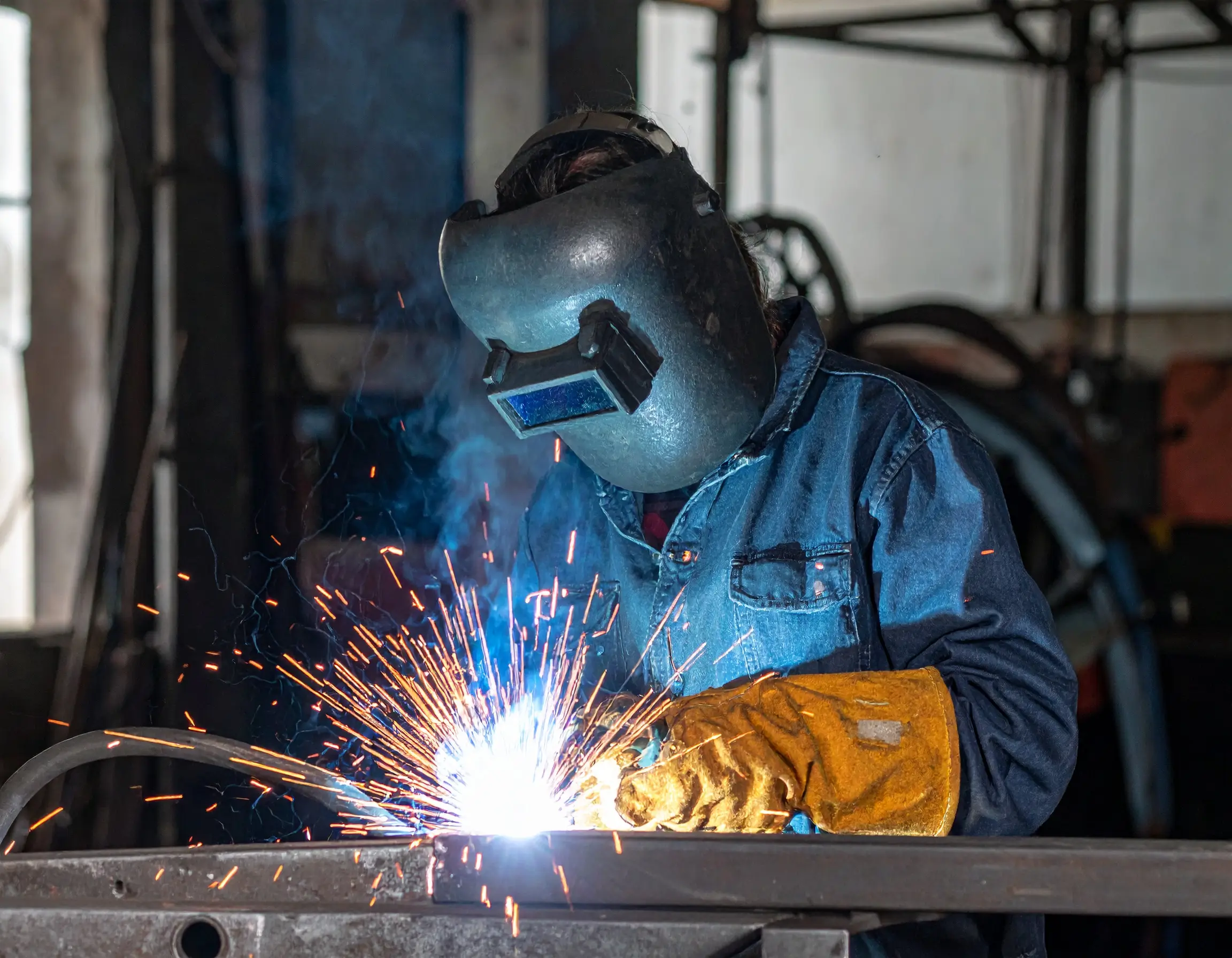As artificial intelligence (AI) continues to advance rapidly, concerns about job displacement are growing. However, there are many professions that remain “AI-proof” because they rely on uniquely human traits and skills that machines simply cannot replicate. Roles requiring deep empathy, creative vision, complex physical dexterity, ethical judgment, and other forms of human intuition are far harder to automate. Even as AI tools become more common in the workplace, they tend to enhance rather than replace the human touch in these careers. In this article, we explore which jobs AI is unlikely to replace and why these roles remain firmly in human hands.
Creative and Artistic Professions
A team of creative professionals collaborating on a design project. Imagination, cultural context, and emotional expression give human creatives an edge that AI cannot duplicate.
Jobs in the creative arts are among the least likely to be replaced by AI. True creativity involves original thought, emotional expression, and personal experience – areas where AI lacks true originality and understanding. While AI can generate images or text by remixing existing data, it cannot innovate in a meaningful, human way. Professions such as artists, designers, writers, and musicians thrive on human imagination and the ability to evoke emotion. For example, an AI might design a logo or compose a jingle, but it doesn’t grasp the cultural nuances orbrand essencebehind the work. These creative roles demand intuition and emotional resonance with an audience – qualities that remain deeply human and irreplaceable.
Healthcare and Social Work
Healthcare professionals consulting together. Doctors, nurses, and caregivers combine medical expertise with compassion and ethical judgment that AI cannot fully emulate.
Healthcare and social assistance careers are fundamentally human-centered and thus resistant to full automation. Doctors, nurses, therapists, social workers, and other caregiving professionals provide compassionate care, empathy, and ethical judgment that no machine can replicate. These roles involve building trust with patients or clients, interpreting nuanced human symptoms and behaviors, and making complex decisions in high-stakes situations. AI has become a powerful tool for diagnostics and data analysis, but it serves augmentative functions rather than replacing the caregiver. For instance, an AI system might flag a potential diagnosis or analyze medical images, yet the human bond of care – listening to a patient’s concerns, providing comfort, and adapting treatments to individual needs – remains essential. Similarly, mental health and social work professionals rely on emotional intelligence and interpersonal connection to support people through difficult life challenges. AI cannot form genuine therapeutic relationships or understand the cultural and personal context behind someone’s struggles. In short, any job centered on healing, caring, or counseling will continue to require a human touch that AI lacks.

Education and Training
Education is another domain where AI can assist but not replace human professionals. Teaching and training involve much more than delivering information; great educators possess mentorship, inspiration, and adaptability that go beyond rote instruction. Teachers, professors, coaches, and mentors tailor their approach to each learner’s needs, adjust to different learning styles, and motivate students through personal connection. AI tutoring software might help with practice drills or grading, but real teachers provide empathy, encouragement, and customized guidance that machines cannot emulate. For example, an experienced teacher can detect when a student is anxious or confused and find creative ways to explain a concept – something an algorithm would struggle with. Educators also impart social and emotional learning, not just academic content. In corporate or skills training contexts, human trainers and coaches draw on their practical experience and understanding of group dynamics to engage participants. All of these interpersonal skills make education a fundamentally human profession. Rather than replacing instructors, AI is more likely to serve as a supplemental tool – helping with administrative tasks or providing personalized practice – while the core teaching role remains human-driven.
Skilled Trades and Manual Work
Skilled trade jobs and hands-on manual work are often cited as roles AI and robots willnoteasily replace, especially in the near future. Trades such as electricians, plumbers, carpenters, mechanics, and construction workers require a blend of expertise, adaptability, and physical dexterity in unpredictable real-world environments. These professionals solve complex hands-on problems on the fly – whether it’s troubleshooting a wiring issue in an old building or crafting a custom piece of cabinetry – tasks that are incredibly difficult to automate. While factories have long used robots for repetitive assembly line work, skilled tradespeople operate in varied settings (homes, construction sites, repair shops) where conditions are never exactly the same. AI-driven robots lack the fine motor skills and adaptive problem-solving needed for such work. For instance, consider a plumber fixing a surprise leak behind a wall: it requires improvisation, experience, and sometimes crawling into a tight space – things a generalized AI-powered machine isn’t capable of doing reliably. Similarly, construction and maintenance jobs often involve real-time collaboration, situational awareness, and safety decisions that necessitate human judgment. As a result, trades and manual labor roles remain relatively safe from full automation. In fact, technology typically ends up assisting these workers (through smart tools, AI-guided measurements, etc.) rather than replacing them outright. The skilled trades will continue to value human craftsmanship and the ability to tackle physical tasks in the messy, unstructured world outside of a computer model.
Leadership and Management Roles
While AI excels at processing data and even providing analytical insights, it cannot lead people or make executive decisions in the holistic way human leaders do. Leadership and management positions – from team supervisors and project managers to executives and community leaders – rely on qualities that are inherently human. These roles require strategic vision, ethical decision-making, negotiation and persuasion, and the ability to inspire and motivate teams. An AI might crunch numbers to inform a strategy, but envisioning a strategic future and rallying people around a common goal demand emotional intelligence and foresight that only experienced humans bring. Managers often must deal with complex interpersonal dynamics: resolving conflicts, mentoring employees, and fostering a positive organizational culture. Such tasks go beyond algorithms. Human resource (HR) managers and recruiters, for example, need intuition to assess a candidate’s cultural fit and to navigate sensitive personnel issues – areas where a purely automated system would fall short. In high-level business leadership, choosing a direction for a company involves weighing values, uncertainties, and stakeholder interests in a way that no AI can fully mimic. Similarly, political leaders and community organizers must understand social nuances and ethical implications when making policy decisions – we won’t be electing robot politicians any time soon. In short, any role centered on guiding humans and making judgment calls under ambiguity remains a human domain. AI can certainly provide data-driven advice to leaders, but it is unlikely to replace the human qualities at the core of effective leadership and management.

Other Human-Centered Roles AI Won’t Replace
Beyond the broad categories above, there are additional roles across industries that remain secure from AI replacement due to their human-centered nature:
- Legal Professionals: Lawyers, judges, and legal advisors perform complex reasoning, argue from precedent, and make nuanced interpretations of the law. Crucially, they must exercise ethical judgment and understand context when advising clients or ruling on cases. While AI can assist by researching case files or even drafting simple contracts, it cannot replace a good lawyer’s critical thinking and moral reasoning. The human ability to argue persuasively, negotiate settlements, and empathize with a client’s situation keeps legal professionals indispensable.
- Customer Service & Relationship Roles: Jobs that involve direct human interaction and emotional support – such as customer service representatives, client managers, hospitality staff, and caregivers – are not going to be fully automated in the foreseeable future. AI chatbots and self-service kiosks can handle basic inquiries or transactions, but they often falter when situations become complex or emotionally charged. Customers still want to talk to a human being when they have a serious problem or complaint. Human service reps excel at listening, empathizing, and creatively problem-solving to make things right for the customer. In fact, deploying AI in these roles often underscores the value of humans: as one analysis notes, automated systems can handle routine questions, but they can’t address upset customers with empathy or deftly navigate unusual situations. The bottom line is that trust- and relationship-based roles call for genuine human connection, which remains a stronghold against automation.
AI is undeniably transforming the world of work, but it isn’t a zero-sum game of humans versus machines. The careers discussed above highlight that the most future-proof jobs are those that leverage human strengths – creativity, empathy, adaptability, and complex decision-making – which AI cannot fully replicate. In these areas, AI serves as a tool to augment human professionals, not replace them, taking over repetitive tasks while people focus on the higher-level, meaningful aspects of their work. As we move forward, the workforce is likely to evolve into a collaboration between humans and AI, rather than a replacement scenario. Individuals who cultivate their uniquely human skills and also learn to work alongside AI will be best positioned to thrive. In fact, experts suggest the future job market will depend less on competing with AI and more on evolving alongside it – workers who stay adaptable, emotionally intelligent, and committed to lifelong learning will lead the way. The takeaway is optimistic: AI may change how we work, but it also elevates the importance of what makes us human. By embracing those human qualities and continuously developing our skills, we can ensure that our careers remain not only relevant but also richly rewarding in the age of AI.


